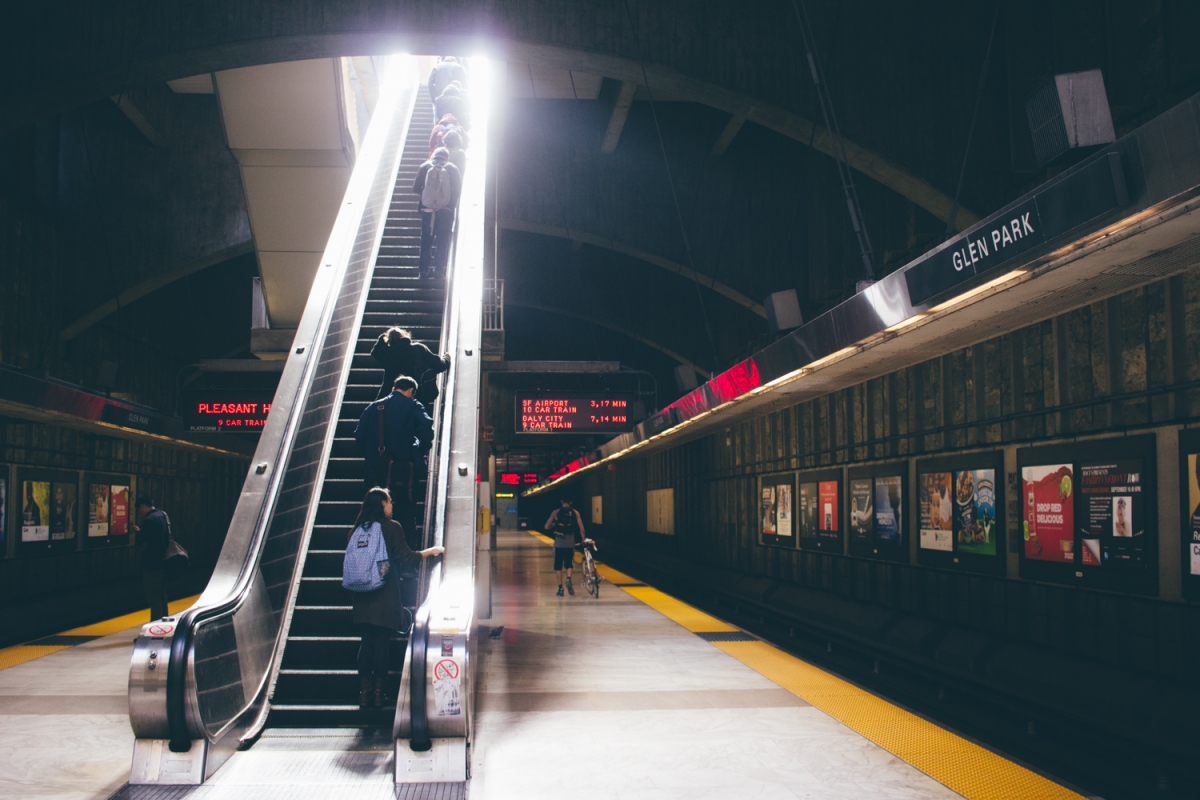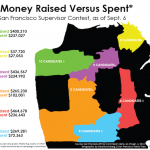
This regional bond measure would raise money to rehabilitate and update the Bay Area Rapid Transit system.
If passed, it would raise property taxes.
This initiative was placed on the ballot by a 9-0 vote of the BART Board of Directors.
Why is this on the ballot?
The ballot measure’s authors argue that the 44-year-old BART system needs major rehabilitation.
 |
| Photo by Nadia Mishkin / San Francisco Public Press |
BART says that within the next 10 years, it will need to spend about $9.6 billion on capital upgrades and replacements. These includes buying a new fleet of trains, replacing electrical systems and cables, replacing 90 miles of track, improving earthquake safety and more.
The agency has secured about half of that money.
What would it do and at what cost?
Proposition RR would allow BART to raise up to $3.5 billion by issuing general obligation bonds in coming years. That money would fill most of the agency’s remaining funding gap.
The bonds would raise property taxes, but the ballot measure language does not say so.
BART has estimated that issuing the bonds would cause taxes on property to rise by an average of $8.98 per $100,000 of assessed valuation in the three counties voting on this bond — San Francisco, Alameda and Contra Costa. That rate could fluctuate from year to year, and the BART controller/treasurer estimates that the highest annual rate would probably be $17.49 per $100,000 of assessed valuation.
If all bonds are issued and sold, the “best estimate” of total debt service, including principal and interest, would be $6.83 billion, BART says.
Is there a catch?
East Bay Times columnist Daniel Borenstein has accused BART of underestimating by nearly double how much Proposition RR’s passage would ultimately cost property owners, and how long it would take to pay off the bond.
“Agency documents show the tax lasting for 48 years, not 30, beginning in 2018 and ending in 2065,” Borenstein wrote. “That’s because BART plans to spread the bond issues over nearly two decades as the money is needed. Each issue would then be repaid in the following 30 years.” Projecting 3 percent annual inflation, he calculated that “the average annual tax through 2065 would be $79 in Contra Costa, $83 in Alameda County and $111 in San Francisco.”
BART staff have disputed Borenstein’s conclusions, saying that their original calculations were correct — the average homeowner would pay about $35 to $55 annually for 30 years.
The BART controller/treasurer notes that “estimated tax rates are based on the ASSESSED VALUE of taxable property … not on the property’s market value.”
Who officially proposed it?
The Committee to Keep BART Safe and Reliable 2016.
Who officially opposes it?
The Kersten Institute for Governance and Public Policy, Libertarian Party of San Francisco and Alliance of Contra Costa Taxpayers.
Vote needed to pass
This ballot measure would need 66⅔ percent of the votes in all three counties — San Francisco, Alameda and Contra Costa.
Effective date if passed
Not specified.
Endorsements: our methodology
The Public Press chose to count endorsements from organizations that backed multiple candidates or ballot measures, and that made those endorsements available online. We did not count endorsements from individuals.
If you think we missed an important organization, please tell us. We’d love to hear from you.
Tracked endorsements by organization
Written by: Noah Arroyo
Published: Sept. 30, 2016








